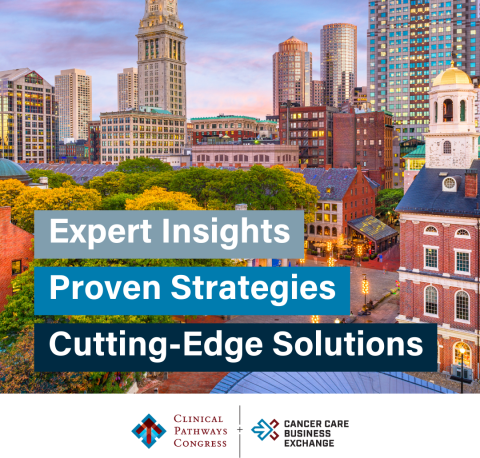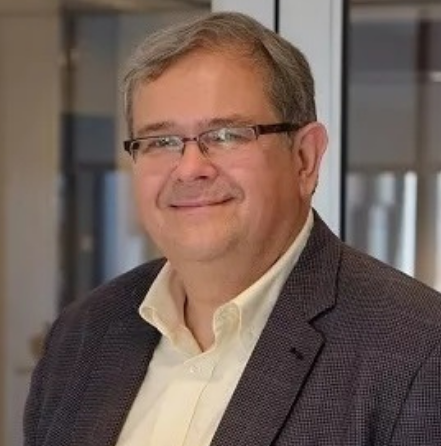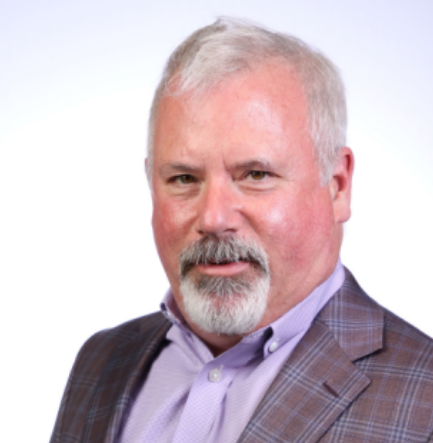What Medical School Doesn’t Teach: Real-World Readiness in US Health Care
In this edition of Breaking Down Health Care, John Hennessy and Dr. Michael Kolodziej explore the limitations of current medical education—from outdated testing and board certification to gaps in real-world practice preparedness—and call for a reimagined approach that better reflects modern clinical realities and the evolving needs of physicians.
John Hennessy, MBA: Welcome to Breaking Down Health Care. I'm John Hennessy. I'm a consultant with Valuate Health Consultancy, and I’m joined by my friend, Mike Kolodziej. Mike, I'm here at the ASCO annual meeting and you're not, what's going on?
Michael Kolodziej, MD: I thought with my rehab from my knee that traipsing around McCormick Place wasn't going to be such a grand idea. I have no qualms about skipping ASCO this year and saving a couple grand. I'm sitting on my back deck in Saratoga Springs. It is just a glorious day here, and I'm enjoying the weather.
Hennessy: We're going to talk today about medical education. We can start with medical school and all the steps that go from there. But for a lot of physicians who are in practice, this is medical education—events like this. Is this a good thing, that 40 000 people are gathering, or are there downsides to this form of medical education?
Dr Kolodziej: So, we're starting at the tail end, because we've got medical school and then we've got postgraduate training—residency, fellowship—and then we've got: how do you educate or maintain your educational level after you finish your formal training?
I would say that meetings like ASCO and continuing medical education, either obtaining it through a national meeting or through reading a journal or doing UpToDate, is one mechanism. You might find personal satisfaction in it, but the powers that be, which is the American Board of Internal Medicine (ABIM), doesn't attach a whole lot of value to that.
What I mean by that is that board certification, which is the gold standard in terms of documentation of maintaining a certain level of education, is managed by the American Board of Internal Medicine. For many years now, the majority of physicians are board certified. Some hospitals require it, many insurance companies require it, so it's not like there's an option not to do it.
These days, however, we're in a state of flux because when I was board certified, back in the 1990s, board certification was forever. But the ABIM changed the rules, and they decided you needed to get recertified every 10 years. There's a whole process and, frankly, that process has changed multiple times. I don't know of any physician who likes the process as it currently exists because you have to do a certain amount of continuing education, which is online and provided by ABIM, and then you have to take a sit-down exam every 10 years.
That sit-down exam is both expensive and time-consuming. Like much of the rest of medical education, it focuses on minutia, trivia. It doesn't really focus on whether or not you're a good doctor or what you've learned by being in practice. The big national meetings, which do give you CME, which is required by many states for licensure, does not enter into board certification, and that's problematic.
Now, I think every doctor in practice probably will admit that there ought to be some mechanism for measuring competency, whether that be ongoing open-book tests or a certain amount of CME, but at this point we don't have a consensus on that.
This is particularly an issue when we start talking about older physicians because there are a lot of question about how do you know that your old doctor, old Dr Kolodziej, knows what he is talking about? There has been much written in the press about some sort of test of ongoing competency in the elderly physician. Proposals have varied from a mandatory requirement to some sort of institutional test. Many large hospital systems actually do tests of internists as well as surgeons, where they try to figure out whether you've still got it or not.
We're in a little bit of a mess right now in terms of maintaining competency and proving we're maintaining competency. ASCO is not the solution.
Hennessy: I've heard a lot of noise about the ABIM and the monopoly situation there, and it does beg the question: the entrance exam for medical school is a test and it's getting good grades on things—are those things that correlate to being a good doctor, or are they just things that are easy to measure and one way of separating wheat from chaff, or maybe chaff from wheat?
Dr Kolodziej: I would argue that those exams—starting with the MCATs and then working our way through the National Board of Medical Examiners Steps exams, which you need to pass in order to get a medical license, and then whatever other assessments there are along the line—unfortunately, I don't actually think they're measuring the kind of stuff we ought to be measuring today because of the access to information.
For example, I write in my blog about my daughter, who is a medical student. She's done very well, finished her third year, and she inherited the memory gene from me. She is really good at memorizing stuff, and she's done very well on those standardized exams. But not that long ago I still had medical students with me in the clinic, and when you need to know the mutations in a patient with acute myelogenous leukemia (AML), you can memorize them, they change fairly often, or you can pick up your iPhone and you can look it up in about 1 minute.
So, the question is, how do you test the ability to access and process readily available information? How do you decide what tests are important and what tests are not important? How do you synthesize the information and make a plan? That's what we ought to be testing. Now, I'm not an educator, but it seems to me that the way we're testing now—which is, "What mutations are there in AML?”—is probably not a good surrogate for how good a doctor you are.
Hennessy: I had a conversation with an oncologist, Gary Doolittle, from the University of Kansas. He was reflecting on how when he was educated, he probably could count the tools he had on his fingers and toes. That's not the case in oncology anymore.
Are we better off with the younger doctors who maybe don't have as much time working with patients, but have all this knowledge about mutations and biomarkers? Or is there something to someone who's had 30 or 40 years of experience talking and working with patients and learning the biomarkers or referencing them, as you described?
Dr Kolodziej: The answer is, you need a little bit of both. For example, you ought to know that there are biomarkers in AML, that's going to heavily influence how you treat that patient. You obviously need to know that, and you need to know where to go look for that information.
It's interesting because, if we think about the whole issue of medical education, the current medical education model is really based on learning basic science and then learning physiology. It's about 125 years old. Prior to that, we had proprietary medical schools that were for-profit, and then a guy came along named Abraham Flexner, and he did a report on medical education and basically said, "This is not the way we should be training our doctors."
Flexner put in the model that I was trained under, which is 2 years of basic science and then 2 years of clinical training. That was gospel for a long time. But it became pretty clear that, and biochemistry is my favorite example, you didn't really need to know all the enzymes in the Krebs cycle, even if you took care of diabetes for a living, you just didn't need to know them. I guess you needed to know them if you were a pediatrician who took care of inborn errors of metabolism but, as an oncologist, I didn't need to know them.
So, there was a change, and we started moving more towards a systems approach to teaching, which is what my daughter had, where you look at the cardiovascular system, the pharmacology of the cardiovascular system, the relevant biochemistry, and the anatomy of the cardiovascular system. Then you actually see a little bit of clinical stuff fairly early on in your training, and I think that's a much better model.
But even given that model, we still test on that stupid trivia. It's unbelievable. We can't help ourselves because we have this illusion that if it ain't broke, don't fix it. I don't agree with that. I think we not only need to start thinking about how to process information, how to synthesize information, how to make a treatment plan, but we also need to teach other stuff. How do you pay for health care in this country? What are the social determinants of health and how do they impact how a patient experiences care and receives care? Ten percent of doctors don't practice medicine; they do other stuff. We should think about ways to make sure they get trained in that other stuff. Every phase, medical school, postgraduate training, and CME, all have room for substantial improvement.
Hennessy: It's interesting that you say that we do a good job of some form of clinical training, but so much of medicine, at least in the United States, involves social challenges, economic challenges, logistical challenges. Is there something missing here that we aren't spending a semester or postgraduate work to say, "Listen, this is the way medicine works, it's prior authorizations, it's coverage policies." Can you practice medicine without understanding that?
Dr Kolodziej: It's funny because when you finish medical school, you're really in no shape to start taking care of patients on your own. You finish residency, even fellowship, you're in no position to open a practice and start doing that on a daily basis because you don't understand how an office works. You don't understand how billing works, how payment works, how office management works, how position compensation works—all that stuff is missing. There ought to be a way to work that into medical education.
The other thing that's clear, and we're starting to fix this, is that all the clinical training from medical school on through fellowship has largely been hospital-based. As you are well aware, oncology is only hospital-based when something goes wrong. Oncology is an outpatient specialty. In fact, a lot of the other specialties in internal medicine are outpatient specialties. If you're a surgeon, the hospital is your workshop. That's different. Now, we've got surgical centers, so that's not entirely true.
But, let's face it, medical education is completely run by medical school faculty. Many of them have more gray hair than I have, and they're old white males, just like me. Change is hard. What we're talking about is getting a novel view of what you need to do to succeed, and what you need to be a good doctor. I always told my patients, "Being a good doctor means knowing when I need to get help and where to go for that help." If I can manage your routine stuff, we're great. But I need to know when something is not right and how we can fix that. We need to take a long, hard look at whether we're meeting that need.
Hennessy: One hundred percent. It's interesting, we were talking about the challenges of practicing medicine in the real world, and I'm fortunately working on an ASCO initiative where we’ll hopefully make a little dent in that for folks entering practice, so they aren't necessarily blindsided right out the gate.
Dr Kolodziej: That's a great idea, best of luck.
Hennessy: That's it for this afternoon's edition of Breaking Down Health Care. Mike and I might be indoors next time, you never know, but I certainly won't be in Chicago. Thanks for joining us today, and please continue to join us and send us a note if you like this stuff. Tell us what you want to hear about. We love talking, so we'll find a way to talk about almost anything.
© 2025 HMP Global. All Rights Reserved.
Any views and opinions expressed are those of the author(s) and/or participants and do not necessarily reflect the views, policy, or position of the Cancer Care Business Exchange or HMP Global, their employees, and affiliates.













